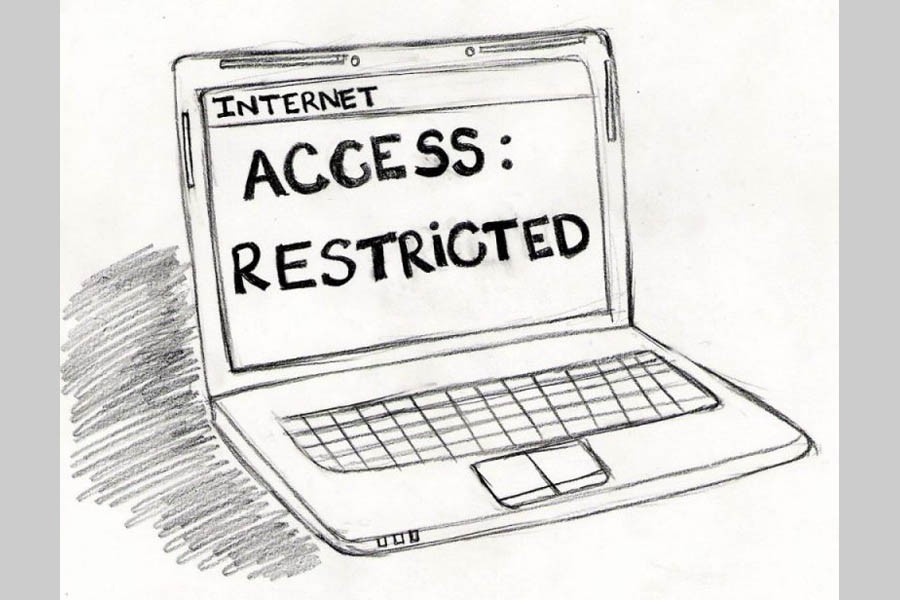The Bangladesh Telecommuni-cation Regulatory Commission (BRTC) has blocked some one hundred internet sites to prevent access saying more sites are under consideration. Yet, Bangladesh was one of a majority that opposed, a few years ago the attempt by the United States to regulate the Internet. Well now it's Mark Zuckerberg who is calling on regulation of the internet and advertising among other things to protect misuse of freedom of expression. There are those that will likely be irked by such a proposition but there seems to be a unity of thought that expression giving rise to hatred such as white racial supremacy and jingoistic nationalism and separatism cannot be allowed to continue.
It leaves a lot of red faces around and vindicates to a degree the Chinese authorities that have blocked the internet and social media platforms for its citizens while providing alternative social media platforms. The dilemma faced by both Facebook and Google is to ensure that they are not indirectly responsible for ever-increasing fears of the power of social media used in what is essentially being looked upon as far right efforts to bring about a change in the social fabric that now exists.
The activities of Russian groups in targeting US voters during the 2016 US Presidential elections happened because Facebook's user private data was easily accessible was the trigger for the social media platform to come under massive scrutiny. Mr. Zuckerberg was hauled before a Congressional Committee to explain how and why this happened. He admitted to the lack of foresight and promised to come up with a solution. Fines were imposed by the US and European Union but the money won't go to the consumer but the governments. Whether individual governments will file cases under US law for its share of the fines remains unknown.
Mr. Zuckerberg has admitted that preventing use of private data without explicit consent of the user, previously promised hasn't been delivered on and that this is part of the commercial viability of free social media and internet services. There will come a time when Facebook may begin to charge for certain services and still remain viable. For the time being it along with Google must find the algorithms necessary to blunt the open-ended access to data. In short they have to come up with solutions to the spill on problem. This after millions of Facebook users woke up to learn that their private data was swimming in the internet and regularly accessed. It explained the uncalled for advertising unleashed on a puzzled user who had innocently browsed a particular service.
There's little that can be done about data already in circulation sans a re-registration process that provides the safeguard. It's a mind-boggling exercise that Zuckerberg now admits can't be done alone by his company. Privacy of data is within Facebook control, indiscriminate use of the platform is not as his argumentation goes. From that perspective the BTRC initiative holds out possibilities to prevent spread of fake news in particular.
As it is Facebook is fast becoming an annoyance of sorts causing many to opt out and away from it. Over-personalised usage makes it a boring media and unlike Twitter limitless posts that have no resonance with the interest of friends and friends of friends is fast converting a social media platform in to a free falling media that loses its relevance. Wearing one's heart on one's sleeve may be important for some but it rankles in the mind of others. Sifting through millions of posts to identify and remove that which is racial and supremacist by itself is an exercise Facebook authorities must unenviably tackle. Advertising content has already permeated all forms of privacy protection, hence the appeal to governments to assist Facebook in preventing hurtful and inflammatory comments and views. Zuckerberg has created something special but never foresaw that it was a sleeping monster that would become not just a medium of conversation but a part of it.


